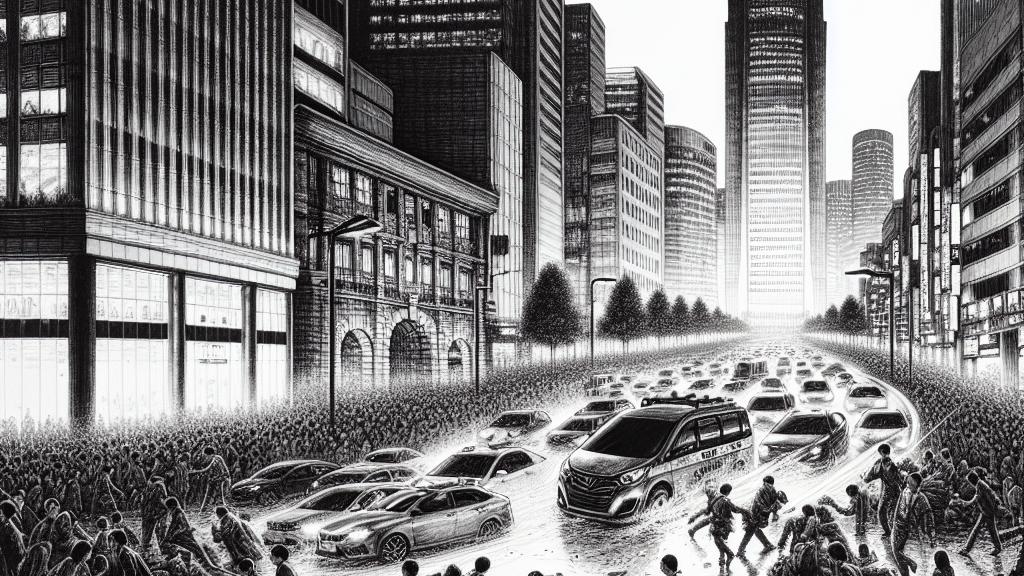Tragedy in Seoul: Driver's Apology Fails to Soothe the Grief of Nine Lost Lives
Overview
- A catastrophic car crash in Seoul resulted in nine pedestrian fatalities.
- The driver, Cha, attributes the accident to sudden mechanical failure.
- Investigations raise concerns about elderly driving and road safety measures.

The Devastating Event in Seoul
On the night of July 1, 2024, a heart-wrenching tragedy unfolded in central Seoul, South Korea, when a car driven by 68-year-old Cha crashed into a group of pedestrians, resulting in nine deaths and several injuries. The incident occurred at a busy intersection near City Hall, where pedestrians were waiting for a green light. Eyewitnesses described the horrifying scene as the vehicle barreled through the intersection without stopping, creating chaos and panic among those present. This incident not only caused immense grief for the families who lost their loved ones but also sparked a significant outcry for improved safety measures for pedestrians in urban environments.
Cha's Controversial Apology and Claims of Malfunction
During his court appearance on July 30, Cha expressed profound sorrow, repeatedly apologizing to the families of the victims: 'I’m very, very sorry to the deceased and bereaved families.' Despite his emotional appeals, the justification he provided—claiming the crash was caused by sudden unintended acceleration—has been met with skepticism. An analysis by forensic experts revealed that he had fully pressed the accelerator without using the brakes at any point during the fatal moments. This critical evidence contradicts his narrative, raising significant questions about accountability and highlighting the possibility of reckless driving rather than a mechanical failure.
Investigative Efforts and the Call for Enhanced Safety Regulations
In the wake of this tragedy, police are conducting a thorough investigation, including the examination of data from the event data recorder installed in Cha's vehicle and reviewing security footage from the crash site. Early findings suggest that Cha accelerated rapidly after leaving a hotel, and the lack of braking prior to the impact supports concerns about negligent driving. This incident has intensified discussions regarding the need for stricter enforcement of driving regulations, especially for elderly drivers, as the government considers implementing more rigorous testing and monitoring. The devastated community is now advocating for tougher road safety measures to prevent accidents like this in the future, underscoring the urgent need for changes to protect vulnerable pedestrians.

Loading...